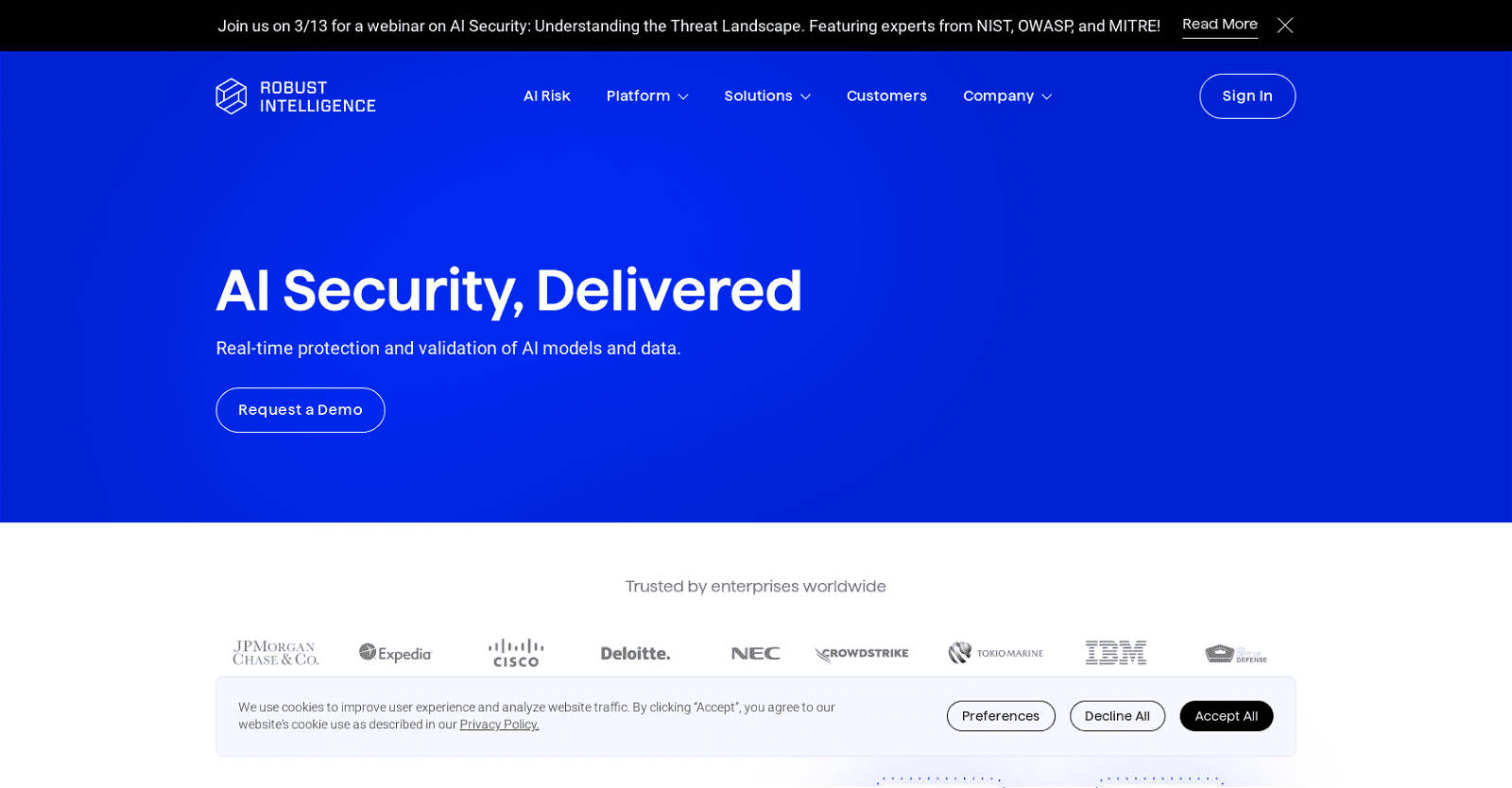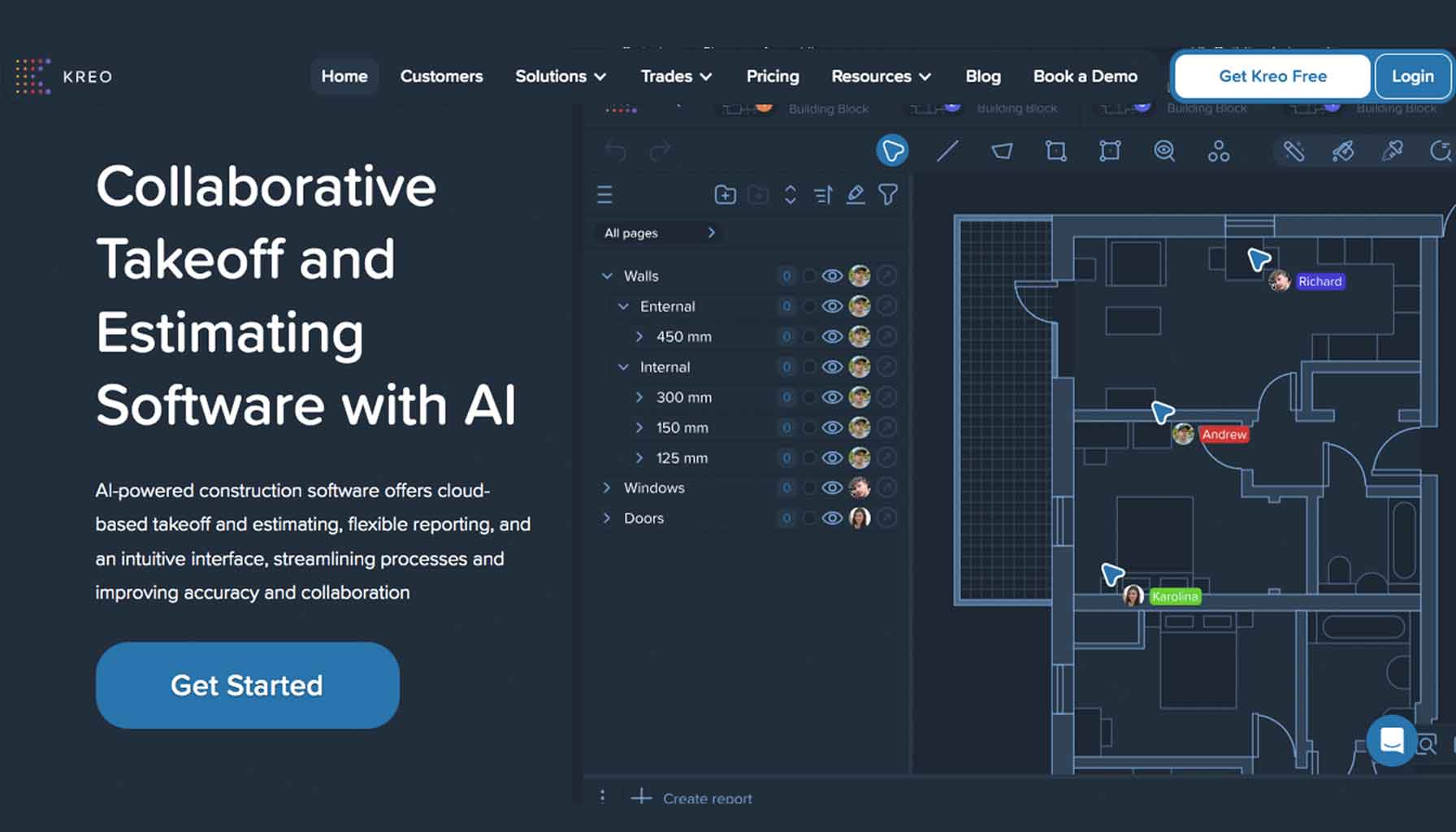Robust Intelligence emerges as an all-encompassing platform geared towards bolstering the security and validation of AI models and data. Positioned as a comprehensive solution, it aims to preempt potential adverse outcomes stemming from machine learning model failures.
The platform’s core functionality revolves around real-time protection of machine learning models, encompassing defense against security, operational, and ethical threats. Notably, it features an AI Firewall that fortifies production models by vetting inputs and outputs in real time, thwarting attacks and undesired responses.
An additional hallmark of Robust Intelligence is its Continuous Validation capability, ensuring ongoing scrutiny of AI models and data throughout their lifecycle. This entails automated red teaming to identify weaknesses, establishment of standardized audit trails to monitor health, and tracking adherence to regulatory standards and compliance.
Moreover, the platform accommodates diverse modalities including Generative AI, while adeptly managing AI risk in alignment with prominent regulations, guidelines, and frameworks. Through these multifaceted features, Robust Intelligence offers a robust safeguard against potential threats and pitfalls in the AI landscape.
More details about Robust Intelligence
Can Robust Intelligence prevent operational threats to machine learning models?
Yes, machine learning models are protected from operational dangers by robust intelligence. It protects models from operational pitfalls caused by both internal and external causes by offering continuous validation and real-time protection.
What is the purpose of the AI Firewall feature in Robust Intelligence?
Robust Intelligence’s AI Firewall function serves to protect production models against security breaches, unwanted reactions, and ethical and operational concerns. Real-time input and output validation is how this is accomplished.
How does Robust Intelligence ensure operational resilience?
By offering continuous model validation and real-time protection, robust intelligence guarantees operational robustness. It detects and eliminates possible risks before they have a chance to cause operational disruptions by continuously observing the behavior and performance of the model.
How can Robust Intelligence help with adhering to AI standards and regulatory compliance?
Robust Intelligence continuously validates AI models and data throughout their lifecycle, which helps with regulatory compliance and adherence to AI standards. It facilitates the creation of a uniform audit record and monitors the models’ compliance with legal and standard requirements.








